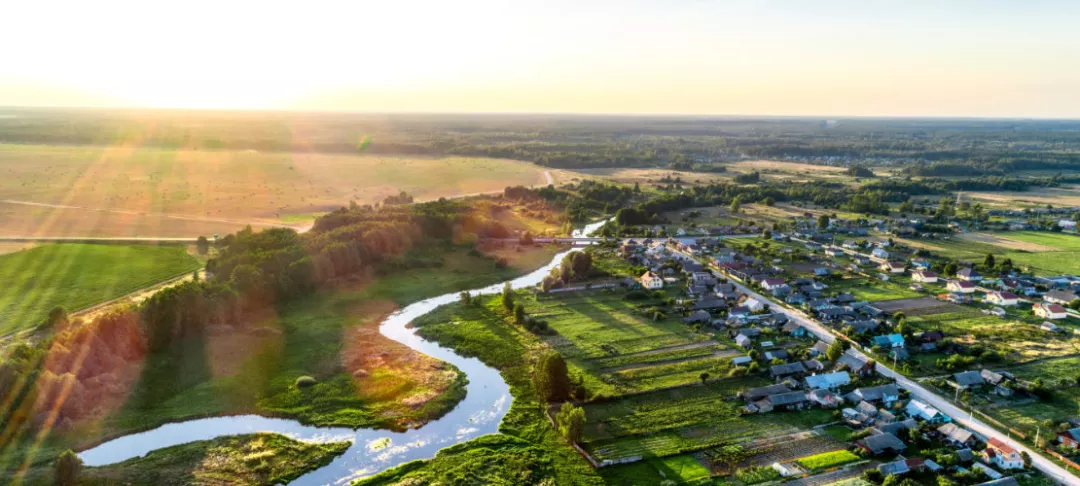New LAG directory launched and LEADER added value showcased
- CAP Implementation
- CAP Strategic Plans
- Jobs, Growth and Equality in Rural Areas
- LEADER
- Long-term Vision for Rural Areas
- Networking
- Rural Development
The EU CAP Network website helps make connections with a new directory of LEADER Local Action Groups for 2023-2027 and shares new Good Practice stories highlighting LEADER’s added value.

Latest LEADER additions to the EU CAP Network’s website include a new networking tool giving details of Local Action Groups (LAGs) from each Member State. This new LAG Directory replaces the previous 2014-2020 ENRD LAG database and provides up-to-date contact information for the newly selected 2023-2027 LEADER LAGs.
The EU CAP Network LAG Directory is still in its first phase and is designed to provide searchable and comparable information for LEADER stakeholders about EU LAGs. Current information includes contact details and social media channels together with the thematic priorities of the LAG’s Local Development Strategies. The directory is searchable either by country or by theme, allowing users to identify LAGs that are working on similar thematic priorities across Member States. Future developments will offer the possibility for LAGs to provide more information on their activities along with their cooperation interests. A ‘Partner Search’ function will be incorporated in the future to help LAGs find and link with others interested in transnational cooperation.
LAG good practices
Other LEADER resources on the website include new Good Practices, which feature recently published LAG-funded success stories across CAP objectives. The projects support agri-food and rural businesses while co-financing environment and climate action, sustaining traditional countryside culture and strengthening social fabric.
Lessons learned about introducing collective approaches to promoting food routes in Italy are among the useful information shared in one of the latest LEADER Good Practice stories. The Del Ducato LAG from Emilia-Romagna funded this project which added value to an existing network of food routes that promotes direct sales of local mushrooms, ham and wine. The routes also harness scenery and culture to help attract and boost local income opportunities from visitors.
A goal to strengthen local development was set by using LEADER to rethink the routes' roles and possible reorganisation. Outcomes led to a new common strategy for communication and marketing of the three food routes under a unified brand. The number of local stakeholders participating in the content and management of the routes increased by 20%.
LEADER’s capacity in Italy for such community-led economic development is further demonstrated by a Good Practice story from Apulia. It tells how 55 new business start-ups were assisted by the Sud-Est Barese LAG which prioritised non-farming sectors such as small retailers, leisure services and welfare services. Emphasis was given to traditional craft skills, with the Good Practice story highlighting two of the project’s business beneficiaries.
Finland’s LEADER approach to social business support is illustrated by a recent Good Practice story about a rural health project for vulnerable elderly residents based in Uusikaupunki. This project was developed to combine nursing and engineering to help solve one of humanity's biggest challenges - the ageing population. A smart methodology was applied that provided easy-to-use, affordable and efficient elderly care services.
Most of this Finnish local development support focused on innovative care, enabling the use of sensor data and the creation of algorithms. With the help of artificial intelligence (AI), nurses and healthcare professionals could then access real-time data access. Thanks to LEADER and AI, rural Finland is now better served by remote care for older, more vulnerable rural residents because the project makes it possible to detect falls, which increases safety and overall well-being.
Two new examples of Latvian LEADER achievements are also now online in the Good Practice collection to complement other website stories about LAG action in Latvia. One of these confirms LEADER’s potential for supporting nutrition and rural diversification in a project led by a female organic farmer who runs a food company producing healthy cereal snacks from sprouted buckwheat. Her product range taps into the rapidly expanding market for vegan, gluten-free and nutrient-dense foods, without added sugar.
Funding opportunities offered by LEADER for this nutrition-driven food initiative led the company to develop a unique production technology using only sprouted and dried buckwheat groats. This enables an increased volume of antioxidants by 30% and eliminates the phytic acid in raw buckwheat that can block the absorption of minerals and vitamins.
A second Good Practice story about LEADER-funded rural entrepreneurs in Latvia relates to reviving the traditional craft of constructing building roofs made from organic reeds and straw. LEADER funds were used to create this new business and increase income for the beneficiary located in Latvia’s Gulbene district. Equally importantly, two young people were hired as apprentices and trained in historically important commercial craft skills.
Cultural heritage, employment and environmental benefits are all showcased in this Latvian LEADER Good Practice. The use of organic reeds and straw for roofs has several climate and environmental benefits including the reduction of greenhouse gas emissions, increased carbon sequestration and conservation, as well as biodiversity preservation. A cooperation agreement with nearby organic farms provides rye straw which is threshed and bundled by the business before being used for roofing.
You can bookmark the website’s LEADER section and Good Practice database to stay updated with all the latest developments on LEADER for the 2023-2027 period.